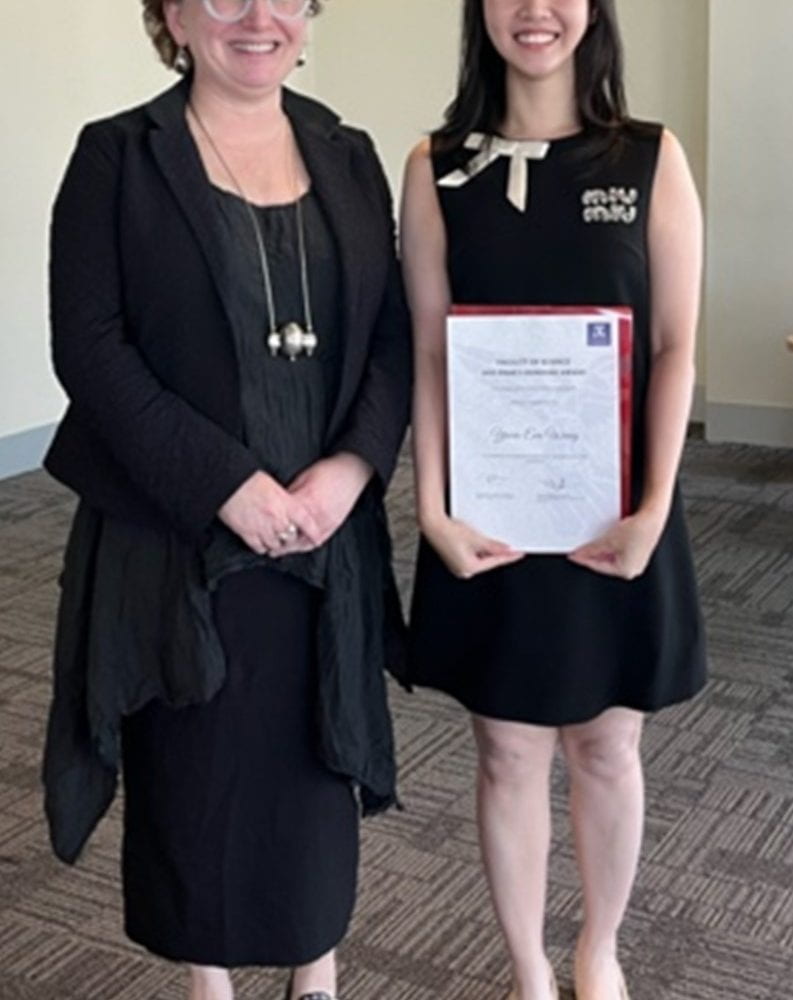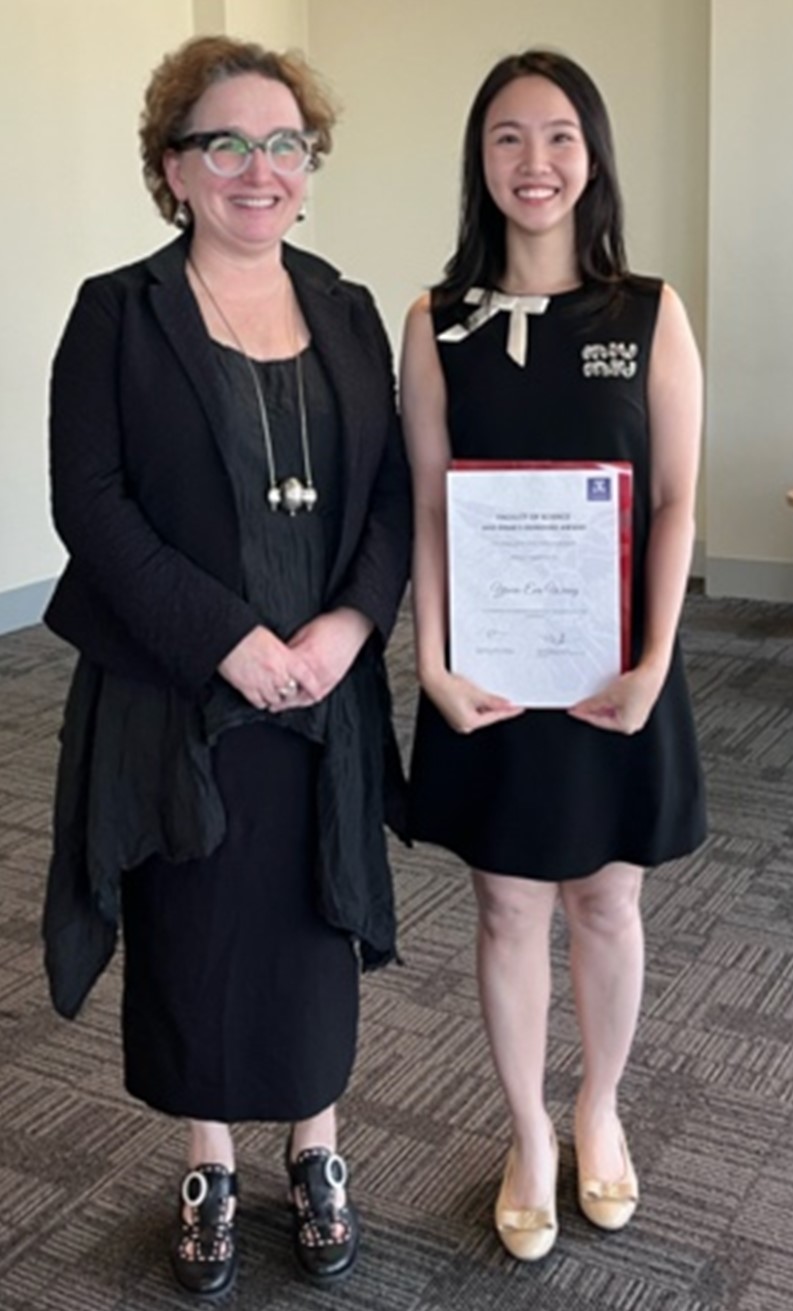
Dean’s Honours Award for PhD thesis to Dr Yiwen Wang
Our former student, Dr Yiwen (Eva) Wang was awarded the Dean’s Honours Award on November 22nd, an award that recognises excellence in a PhD thesis submitted in the previous year. Dr Wang conducted her research at Melbourne Integrative Genomics and the School of Mathematics and Statistics, under the supervision of Prof Kim-Anh Lê Cao.

The Dean of Science, Moira O’Bryan and Dr Yiwen (Eva) Wang at the Award ceremony
Dr Yiwen (Eva) Wang was awarded the Dean’s Honours Award on November 22nd, an award that recognises excellence in a PhD thesis submitted in the previous year. Dr Wang conducted her research at Melbourne Integrative Genomics and the School of Mathematics and Statistics, under the supervision of Prof Kim-Anh Lê Cao. Her thesis is entitled ‘Statistical and Computational Methods for Microbiome Data Analysis’.
‘I am very excited to receive this award. I want to warmly thank my supervisor for her guidance during my PhD, and every colleague and friend at MIG and the School of Math and Stats, who gave me unwavering support. This award does not just belong to me, but to all of you’ said Dr Wang.
Dr Wang’s project focused on the development of statistical and computational methods for microbiome research, a field that critically lacks methods to analyse complex microbiome data.
The field of microbiome has grown exponentially in the past 10 years. Between 2007 and 2019, the U.S.A spent US$943 million on microbiome research.
Dr Wang presented her early work in 2017 at the international symposium in Boston: ‘Statistical and Algorithmic Challenges in Microbiome Data Analysis’, which she later published1 (already 73 citations). Her unique aptitude for collaboration also led to a co-authorship article with a statistician and mathematician from the University of Catalunya2 (57 citations).
Eva’s PhD work has already been adopted by microbiome researchers. For example, Kashaf et al. have used her tools named PLSDA-batch3 to assess batch effects in a study investigating the skin microbes in atopic dermatitis. Others, such as Geers et al. have used her framework, available in her Github repository, to identify bacterial strains associated with biosynthesis which may lead to the development of novel drug candidates.
Besides her methodological contributions, Dr Wang’s analyses have contributed to advancing knowledge in collaborative studies, by investigating the role of the microbiome in several diseases. For example, in Moentadj et al. (Annals of the rheumatic diseases, 2021), in collaboration with researchers from the University of Queensland, Eva’s analysis showed that the oral microbiome of rheumatoid arthritis patients was distinct from those who are healthy, and that a microbial signature that she identified could be used to predict the status of these patients. With our colleagues from Anatomy and Neuroscience, Gubert et al. (Brain Communications, 2022), her analyses were instrumental in revealing the existence of a link between the gut microbiome and Huntington’s disease in a mouse model.
In addition, Eva reached the 3-min thesis competition final in 2020, representing the School of Mathematics and Statistics for the Faculty of Science. She was also selected amongst the finalists for the Di Cook Award 2021 from the Statistical Society of Australia for her PhD work and her extensive software development.
Soon after completing her thesis, Dr Wang returned to China and has already been recruited as Associate Professor at Agricultural Genomics Institute at Shenzhen, Chinese Academy of Agricultural Sciences. She has already secured more than AUD$200,000 from funding agencies including China Postdoctoral Science Foundation and National Natural Science Foundation of China.
- Yiwen Wang and Kim-Anh Lê Cao. Managing batch effects in microbiome data. Briefings in Bioinformatics, 21(6):1954–1970, nov 2020.
- Antoni Susin, Yiwen Wang, Kim-Anh Lê Cao, and M Luz Calle. Variable selection in microbiome compositional data analysis. Nucleic Acid Research Genomics and Bioinformatics, 2(2): lqaa029, may 2020.
- Yiwen Wang and Kim-Anh Lê Cao. PLSDA-batch: a multivariate framework to correct for batch effects in microbiome data. Briefings in Bioinformatics, 24(2): bbac622, Jan 2023.
Categories